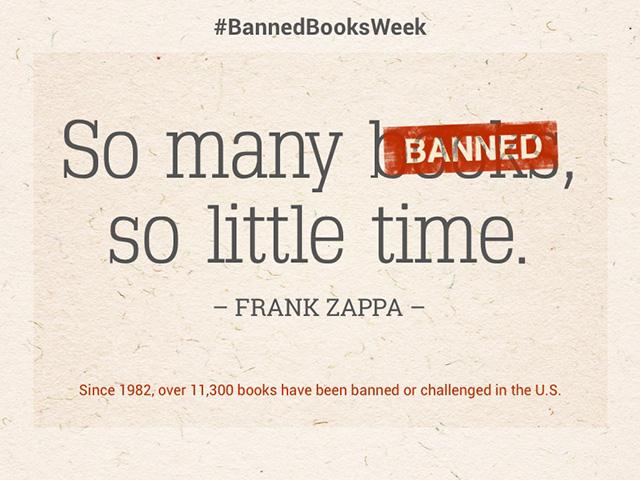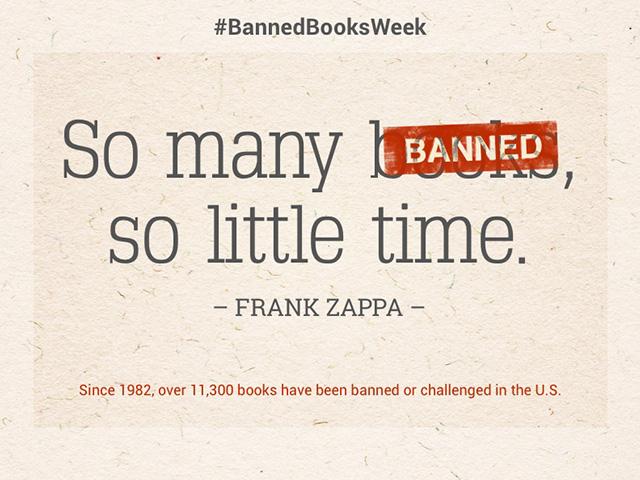An Urban's Rural View
Book Bans, Yes or No?
Fearlessly, or maybe foolishly, my book group is delving into banned books. For our March meeting, each member is going to pick one and give a report on it.
Book banning is booming these days, so there are thousands to choose from. According to PEN America, a non-profit that has been suing to overturn bans, more than 1,600 have been banned in just one Florida county.
Ours is a neighborhood group. We all live within two football fields of each other in Vancouver, Washington. Politically, the neighborhood is a microcosm of America: divided. And book banning is, to say the least, controversial, enveloped in arguments over sex education, gender identity, racism, wokeness and more.
Yet when the idea was raised, everyone favored reading banned books. We looked at a list of hundreds of suppressed titles, including some I'd read in high school. There was a good deal of headshaking by those offended by book banning.
No one spoke in favor of bans, but I suspect some in our group just prefer not to court controversy. One way many navigate the country's polarization is by following their parents' advice: Avoid politics and religion in polite conversation.
In a way, for banners to focus on books seems almost quaint. Social media has much more of what worries them. But it's near impossible for a city or county to censor the internet. (While some states have prohibited TikTok from being downloaded on state-owned devices, this only affects state employees--and even they are free to view TikTok on their personal phones.)
Books are different. Even small local governments can ban them. Should they?
P[L1] D[0x0] M[300x250] OOP[F] ADUNIT[] T[]
Some Americans care far more about freedom of expression than about communities being able to determine what their children are exposed to. To them, book bans violate the First Amendment to the U.S. Constitution -- period.
The Supreme Court, though, has had surprisingly little to say about this. In 1982 the court struck down the removal of books from a school library by a 5-4 vote, but the five couldn't agree on a reason for the ruling.
Justice William Brennan wrote that the removal violated students' First Amendment right to receive ideas and information. Two of the five agreed with the result but not with Brennan's First Amendment rationale. Lacking a majority opinion, the case is not definitive.
Like many journalists I am a strong supporter of First Amendment rights. I'm generally against bans. But no right is absolute. While adults, in my view, have a near-absolute right to read whatever they wish, most bans are of books for children.
Whoever decides which books are available to children will inevitably exclude some as age-inappropriate. So who gets to do the excluding? Librarians? Teachers? School-board officials? Governors?
For ban supporters, the answer to the who-decides question is clear: The decision must reflect community values. Thus, when elected officials second-guess librarians, they're just doing their job -- representing the community.
There's something to this argument but it can easily be taken too far. In many cases, books are banned because a few vocal parents raise havoc at a school-board meeting. Do they speak for the community? Not necessarily.
If the justification for bans is community values, they should at least be the values of a clear majority of the community. Even then, under our Constitution community values don't always prevail over individual rights. If they did, blue states could ban gun ownership; it would be consistent with their community values.
While I'm unsympathetic to bans, banning a book for children because it's deemed obscene seems less problematic than banning one because someone disagrees with its political message. Classics like To Kill a Mockingbird have been suppressed because local authorities want zero conversations about racial justice. Those conversations are important.
We should distinguish between school libraries and school curricula. There's far less justification for removing a book from the school library than ruling it can't be assigned and taught in the classroom. Justice Brennan emphasized this distinction in that 1982 case, which involved school libraries.
We should also distinguish between school libraries and public libraries. In recent years bans on books in public libraries have increased. This is censorship run amok.
The banned book I've chosen to report on is Kurt Vonnegut's satiric novel Breakfast of Champions. The reviews say it contains some non-prurient sex and negativity about the U.S. For example, the narrator calls the national anthem "gibberish sprinkled with question marks."
I may or may not end up liking the book. I can't imagine I'll favor banning it.
Urban Lehner can be reached at urbanize@gmail.com
(c) Copyright 2024 DTN, LLC. All rights reserved.





Comments
To comment, please Log In or Join our Community .